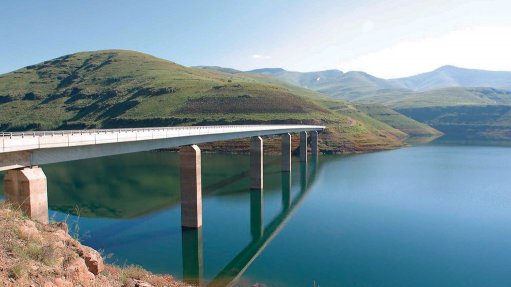
An ongoing culture of nonpayment by local municipalities has exacerbated the water troubles South Africa faces, with the Department of Water and Sanitation currently owed R10.7-billion, Minister Nomvula Mokonyane revealed on Thursday.
She pointed out that R3.9-billion is owed to the department’s Water Trading Entity and R6.8-billion to the various water boards.
The Minister has now issued notices to 30 municipalities that the department would terminate bulk water supply should they fail to pay their water debts by December 8.
“We have had a big cut, if not a wound, three cuts in one financial year,” Mokonyane said of the department’s current financial situation.
Earlier this month, bulk water authority Rand Water already reduced the pressure to its client Emfuleni local municipality by 60% for defaulting on its debt.
Also speaking at the briefing, Water Trading Entity acting CFO Paul Nel said that, in total, there were 186 municipalities that have been handed over for nonpayment. “This debt from municipalities has been growing over the last seven years,” he pointed out.
About R7-billion has been outstanding for a period exceeding 120 days.
Around concerns that the throttling of water supply would affect the end-user more than the municipalities and whether it would breach their constitutional right to water, Mokonyane noted that associations such as the South African Local Government Association (Salga) - “our immediate client” - had an “obligation over the end-user”, adding that it was Salga that should have kept the end-user abreast that municipalities were not paying for public water.
This raised questions about whether there was a breakdown in communication between national government and local governments. “I would love to hear how local organisations, local government has used the additional grants that have gone to them . . . let’s hear what has been spent and what it has been spent on,” Mokonyane challenged.
Meanwhile, the Minister lauded the OR Tambo district municipality, in the Eastern Cape, noting that it was the only municipality that was currently servicing its debt in line with a payment plan. “The rest are still failing to settle their debt and, as such, the debt is rising unabated.”
Nel added that, at the current rate of nonpayment, the debt will grow by R1.5-billion every year. “This is money we should be using elsewhere.”
Mokonyane highlighted that if municipalities did not pay their debts, the Water Trading Entity could not provide critical services, which included building new infrastructure and undertaking maintenance, which affected water supply.